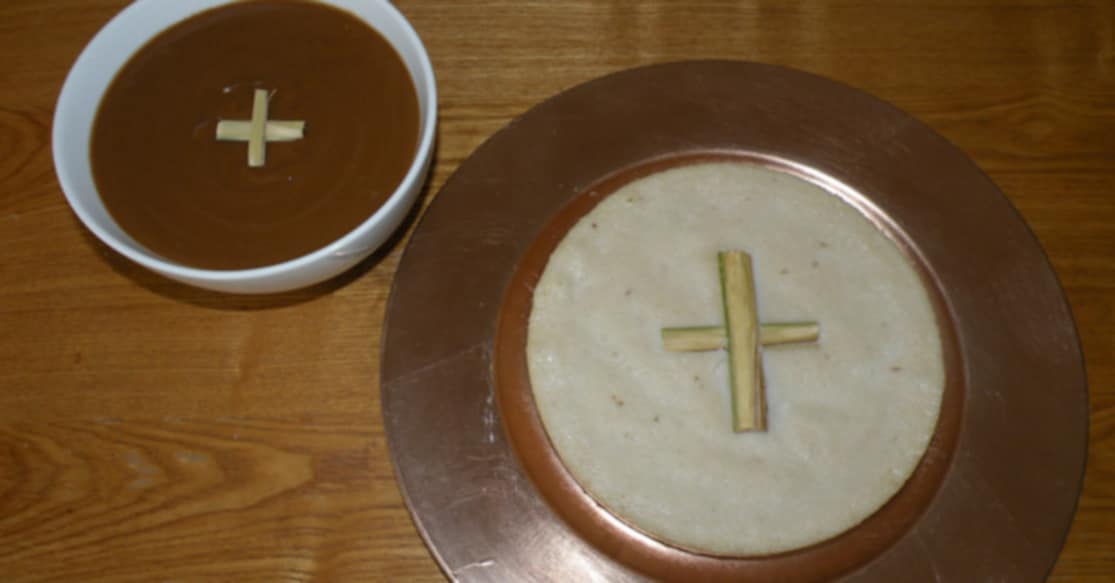Pesaha Appam and pal, the toast of Holy Thursday

Mail This Article
The whole of Christian community is awaiting the Holy Week and the flavour of unleavened bread or Pesaha Appam, which is prepared using rice flour, lentil, cumin and garlic, has become the trademark of Christian homes in Kerala. With a few days left for Maundy Thursday, it is also time to revisit the hundred years of tradition and belief of Christian community. The bread which Jesus Christ distributed to his disciplines saying `this is part of my body’ has become staple food for Christians on Holy Thursday. The traditional unleavened bread has been converted into our traditional food by preparing it using cumin, garlic and bits of palm strands. **Pesaha Appam, a traditional preparation** There is lot of tradition behind the serving and preparation of unleavened bread or Pesaha Appam made on Maundy Thursday. The surroundings are cleaned and preparations begin with prayer. Rice flour is the main ingredient of Pesaha Appam. Soaked lentil (dal) is made into a paste without adding water. It is then mixed with rice flour at a proportion of 1:3. Cumin and cardamom are made into a paste and added to the mixture of dal and rice flour. Coconut scrapings, salt and hot water are added to the mixture and the batter is ready to make Pesaha Appam. The batter is spread on a plantain leaf in round shape. The ends of the plantain leaf are tied with plantain threads and steamed to prepare the appam. In some places, the appam is fried. A replica of cross made of palm leaves is placed at the centre of the appam. **Pesaha Pal instead of wine** As per Christian tradition, though wine is served along with Appam on Maundy Thursday, Christians in Kerala make milk (Pesaha paal) and serve it instead of wine. Coconut milk is mixed with jaggery, cumin, dry ginger and cardamom and heated to prepare the special milk for Maundy Thursday. A little rice flour is added to thicken the milk. As the milk boils, strands of palm are added to it. This yearly preparation is relished along with the appam.

